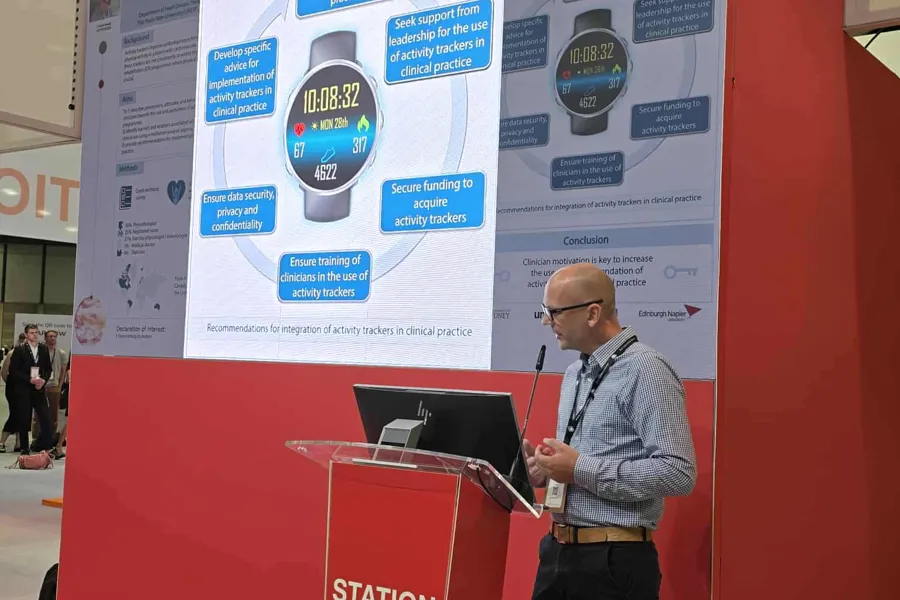ESC Congress 2025—advocating digital tools for cardiac rehabilitation
Dr. Trond Røed Pettersen, Haukeland University Hospital, presented new research from the TRACKER-study at the European Society of Cardiology (ESC) Congress 2025, held from 29 August to 1 September in Madrid, Spain.

He delivered a moderated poster presentation on “Barriers and enablers to the use of activity trackers in cardiac rehabilitation programs: a multi-national study” as part of the Lifestyle, Nutrition, and Behavioural Interventions with Cardiovascular Health session.
Activity trackers are increasingly used to reinforce positive health behaviours through creating sustainable lifestyle changes. However, they are not consistently or widely implemented in cardiac rehabilitation programmes where physical activity promotion is crucial. This multi-national survey included cardiac rehabilitation clinicians from Australia, Brazil, Canada, Norway, and the United Kingdom, and explored their perspectives on incorporating activity trackers such as Fitbits and smartwatches—into clinical practice.
The TRACKER-study found that a substantial proportion of clinicians recommend or use these tools to help patients understand their health status, adhere to exercise plans, and improve communication with care teams. Barriers and challenges as perceived by clinicians were identified and discussed for further exploration and problem solving.
A key takeaway is that clinician motivation plays a central role: even if the technology is available, providers need to see the value in using it and be supported to do so. The study recommends providing proper training, developing policies for safe and ethical use, ensuring data privacy, and building sustainable funding models. If these steps are taken, activity trackers could become a more widely accepted and useful tool in cardiac rehabilitation, helping patients stay active and engaged in their care over the long term.
This study originated at the University of Sydney, Australia, with Professor Robyn Gallagher as chief principal investigator. Dr Pettersen's two research stays at the University of Sydney, collaborating with Professor Robyn Gallagher and her team, underlines how international collaboration contributes to innovation in patient care, helping ensure that the latest knowledge and technology can benefit patients here at home. Moreover, this study reflects Dr Pettersen's ongoing commitment to advancing eCardiacRehab, an interdisciplinary digital cardiac rehabilitation programme developed by the PROCARD Research Group, where activity trackers will be used to increase patient motivation and adherence to physical activity recommendations.